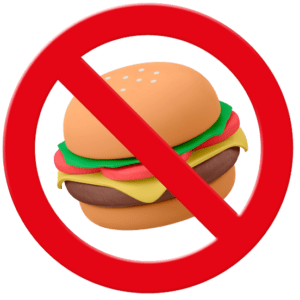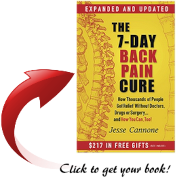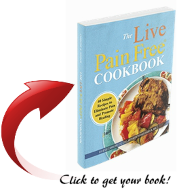There is limited research on the direct relationship between intermittent fasting and pain relief. However, there are some studies that suggest that intermittent fasting may have potential benefits in reducing chronic pain. Before we continue, I want to let you know that I am not a medical professional, and I am not providing medical advice. The information that follows is something that resonates with me, and I hope it is of value to you. Even my primary medical care doctor had positive things to say about it … just food for thought.
What is Intermittent Fasting?
Maybe a better question maybe, what is the difference between fasting and intermittent fasting?
Fasting and intermittent fasting are related but distinct concepts. Fasting refers to the act of abstaining from food and/or drink for a period of time, while intermittent fasting involves alternating periods of fasting and eating.
Fasting can take many forms, including water fasting, juice fasting, and dry fasting, and can last for varying lengths of time. Some people may choose to fast for religious or spiritual reasons, while others may use fasting as a tool for weight loss, detoxification, or other health benefits.
Intermittent fasting, on the other hand, involves restricting calorie intake during certain periods of time and eating normally during others. The most common types of intermittent fasting include time-restricted eating, in which a person limits their eating to a specific window of time each day, and alternate day fasting, in which a person fasts every other day or restricts calorie intake on certain days of the week.
The main difference between fasting and intermittent fasting is that fasting involves a longer period of time without food or drink, while intermittent fasting involves alternating periods of fasting and eating. While both can have potential health benefits, it is important to note that fasting can be more challenging and may not be appropriate or safe for everyone, while intermittent fasting may be a more sustainable approach for some people.
Dangers of Fasting
It is important to note that any form of fasting, including intermittent fasting, can have risks and potential dangers for individuals with certain medical conditions or who engage in extreme forms of fasting. Here are some potential risks and dangers associated with intermittent fasting when used for pain relief:
1. Nutrient Deficiencies: With any form of fasting, there is a risk of not getting enough essential nutrients, especially if the fasting period is prolonged. This can lead to deficiencies in vitamins, minerals, other vital nutrients, and even electrolyte imbalances. To prevent this, it is important to make sure you are eating a well-balanced diet during the eating periods of intermittent fasting, as well as stay well hydrated.
2. Dehydration: Fasting can lead to dehydration if you are not drinking enough fluids during the fasting period. It is important to stay hydrated by drinking water and other calorie-free fluids.
3. Increased Hunger and Food Cravings: Some people may find that intermittent fasting increases their hunger and food cravings, which can lead to overeating during the eating periods. This can sabotage weight loss goals and lead to unhealthy eating habits.
4. Disordered Eating: For some individuals, intermittent fasting can trigger disordered eating patterns or exacerbate existing eating disorders. It is important to monitor your mental health and seek professional help if you notice any signs of disordered eating.
5. Blood Sugar Imbalances: Intermittent fasting can lead to fluctuations in blood sugar levels, especially for individuals with diabetes or other metabolic disorders. It is important to work closely with a healthcare professional to monitor blood sugar levels and adjust medications as needed.
6. Fatigue and Low Energy: Some people may experience fatigue and low energy during the fasting period, especially during the first few weeks of starting intermittent fasting. This can make it difficult to perform daily activities and may negatively impact exercise performance.
Overall, the risks and dangers of intermittent fasting can be minimized by adopting a well-balanced, nutrient-rich diet during the eating periods, staying well hydrated, and working closely with a healthcare professional to monitor health outcomes.
Possible Benefits of Intermittent Fasting on Pain Relief
1. One possible mechanism is the reduction of inflammation. Chronic inflammation is associated with many chronic pain conditions, and it has been shown to reduce inflammation in the body. Intermittent fasting appears to activate the body’s natural anti-inflammatory pathways. More specifically, the body goes into a state of “ketosis,” in which it begins to break down stored fat for energy. This process leads to the production of ketones, which have been shown to have anti-inflammatory effects in the body. This may help to alleviate pain associated with inflammatory conditions such as rheumatoid arthritis and osteoarthritis and decrease the use of pain medication in such patients.
2. Another potential mechanism for its pain-relieving effects is the release of endogenous opioids, such as endorphins, which are natural painkillers produced by the body. Some studies have shown that intermittent fasting may increase the production of endogenous opioids, which may help to alleviate pain by reducing the perception of pain.
3. Some studies have suggested that intermittent fasting can reduce oxidative stress and inflammation in the nervous system, which may help to alleviate pain associated with nerve damage or neuropathic pain.

It is worth noting that the research in this area is still in its early stages, and more studies are needed to fully understand the relationship between intermittent fasting and pain relief. Moreover, fasting can have potential side effects and risks, especially for those with certain medical conditions or taking certain medications. Therefore, it is important to consult with a healthcare professional before starting an intermittent fasting regimen or using it as a method for pain relief. They can help you determine the appropriate treatment plan to address your pain relief needs.
To Your Success & Freedom,
Glenn Shimabukuro




